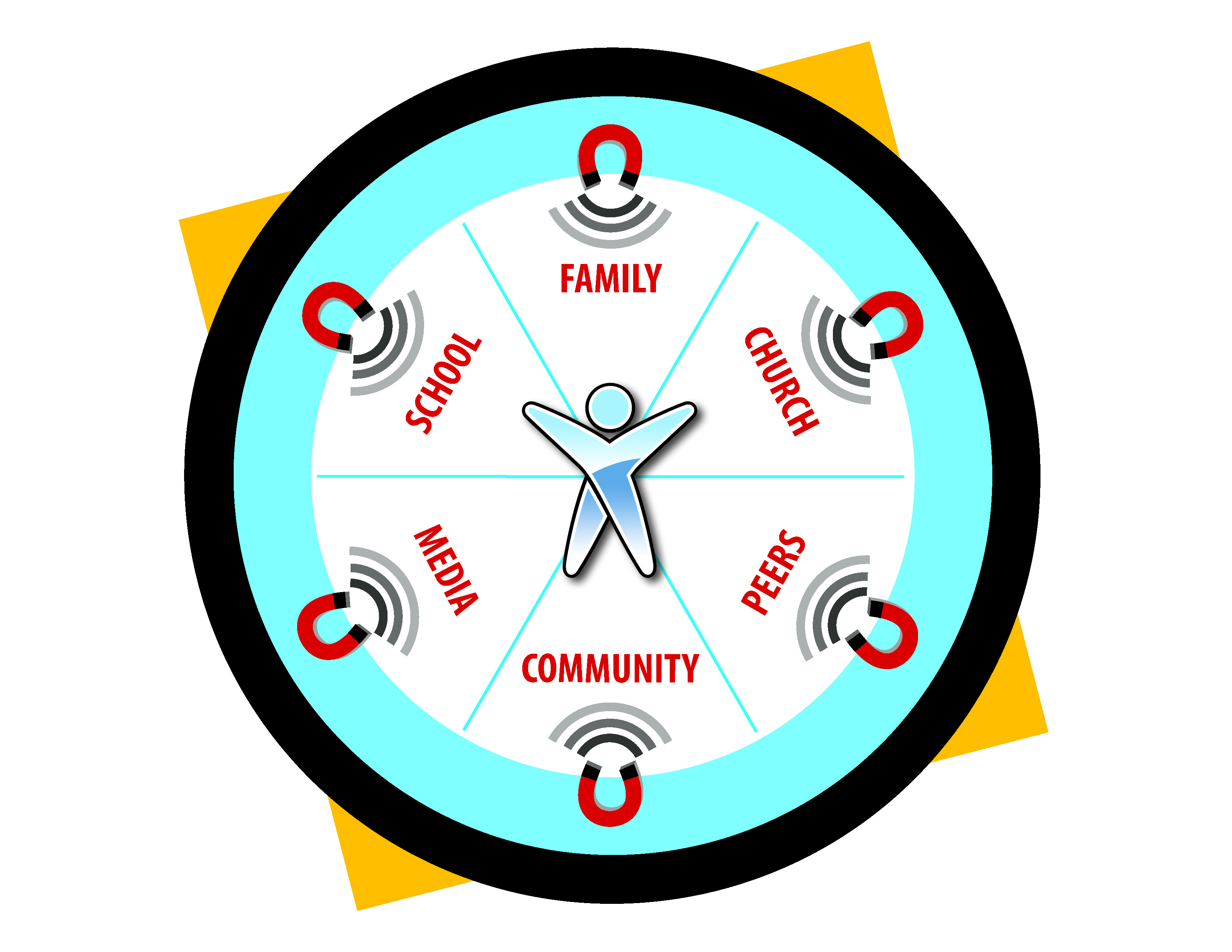Just as seeds develop differently in various soil types, children respond differently to God’s Word. Some initially embrace the message, others eventually give up on God, some become captivated by the world, and still others produce a bountiful crop (see Mark 4:1-20).
Six environments shape your child’s understanding of reality. Each one can cultivate health and growth, or disease and death. These environments have the power to draw like a magnet—either attracting kids to God, or repelling them from Him.
True Story
As a gregarious youngster, friends were a huge part of my upbringing. My Mom often told me, “Who you hang out with—is who you become!”
Those words proved to be priceless as I progressed from little girl to “tween.” My school paraded a diverse range of people, some who loved the Lord, and others who did not. I chose to hang out with a girl who grew up in a Christian home, but who was making very poor choices. My parents sensed that her influence was not bringing out the best in me. I chafed at their “interference” in my friendship. Before long, after one-too-many poor choices, they forbade me to spend time with her.
Upon distancing myself from this relationship, I started attending a new youth group. There I quickly found new friends who became my confidants throughout my early teen years. My parents wholeheartedly embraced these new friendships. They provided encouragement and positive influences in my walk with the Lord. Though I hated to admit it—Mom and Dad were right!
Six Environments that Shape Worldview
Family—The family is the first of two institutions commissioned by God Himself. The Lord is pro-family. He wants Christian homes to flourish. For most children, however, the healthy influence of the home is waning. Christian homes struggle with shifting priorities; secular homes increasingly succumb to worldly values.
Church—The Church is also divinely ordained—a beacon of hope, salt, and light for every generation. Though the authority of the North American church is clearly eroding, when all else crumbles, the true Church will remain intact.
Peers—As the influence of family diminishes, the impact of peers inevitably increases. Instead of looking for support at home, many children seek approval and identity from their friends. Teaching kids how to choose good friends is essential.
Community—Each town and city features unique demographics that affect a child’s development. Kids who grow up in inner cities, in rural towns, and in sprawling suburbs are exposed to radically different environments. It is increasingly important for children to use God’s lens to interpret the cultures and people they encounter.
Media—Technology plays an increasingly prominent role in the lives of children. Televisions, computers, tablets, smartphones, video games, and other digital devices are not only changing what kids see and hear, they also alter how they communicate. These media are powerful tools that children can learn to use judiciously.
School—Public, Christian, and home schools offer a wide array of educational opportunities. Teachers and administrators are experiencing dramatic role changes. With the fragmentation of families, many children look to teachers for emotional support as well as for academic training.
Action Step: Unless Christianity exerts a stronger influence than the world, the enemy’s persuasive tactics will wean your child from the truth of God’s Word. Like a loyal gardener, you can frighten away birds that swoop down. You can shelter seeds from the scorching sun. You can uproot thorns that threaten to choke God’s Word. With God’s help, your child can be abundantly fruitful.






